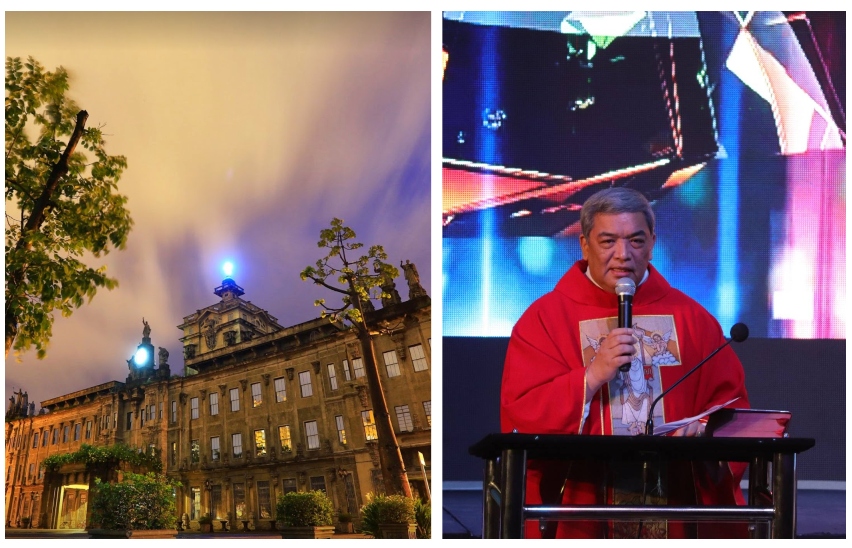The University of Santo Thomas is under fire for its anti-LGBTI rules. | Photo: Facebook/UST
A major university in the Philippines has come under fire for strict guidelines it enforces on students including a ban on ‘cross-dressing’ and LGBTI relationships.
The University of Santo Thomas is one of the country’s leading universities. The Catholic institution is Asia’s oldest existing university.
An updated version of the university’s student enrolment conformé (contract) went viral this week. Discriminatory and conservative restrictions in it angered many people.
Some of the rules include a ban on tattoos and piercings, and students’ social media accounts must not include ‘inappropriate’ content. Another controversial rule includes banning the right to assembly.
The university also prohibits students from having pre-marital sex.
But students are also banned from ‘engaging in relationship contrary to the principles adhered to by the University and the teachings of the Catholic Church’. Many interpreted this as a ban on LGBTI relationships.
Other rules which have raised eyebrows in the LGBTI community include a ban on ‘cross-dressing’.
‘Cross-dressing or wearing the clothes of the opposite sex is prohibited,’ the conformé reads.
UST is now forcing its students to sign a conforme that bans, among others:
* Anti-UST online sentiments
* Joining rallies/assemblies
* “Acts of indecency in electronic media” (vague)
* Engaging in premarital sex or LGBT relationshipsLINK: https://t.co/MNoYTLtBHu pic.twitter.com/Ls5YSL9smr
— FJ (@AngryFerds) July 16, 2018
UST is not above the law
LGBTI advocates have responded with alarm and disgust to the conformé.
Irish Inoceto is the vice-chair of the Iloilo Pride Team and Iloilo chapter of activist group, Bahaghari. She told Gay Star News the conformé goes against many principles in the Philippines’ Constitution.
‘No institution should be allowed to place itself above the law nor should it be allowed to divest itself of respect for basic human rights. This is 2018 for Christ’s sake!’ Inoceto said.
‘UST remains to be one of the top universities in the country and students who want to pursue higher learning should be safe from discrimination no matter where they choose to study.
‘The provision on “engage in relationships outside of marriage” directly affects the LGBTI students, same sex marriage is not legal in the country and will always put LGBTI in danger of being expelled.’
Going viral
Justin Bionat is also a member of the Iloilo Pride Team. He works as a project officer at Youth Voices Count, a regional HIV organization that works with young key affected population.
A Facebook post he wrote about the issue has gone viral with more than 2,000 likes and share.
He told Gay Star News that the controversy around UST’s conformé is because of an ongoing ‘argument between policies of private and public institutions’.
‘My post and my opinion was rooted on the idea that students rights and welfare is a primary human right and should be upheld regardless of the type of administration runs the institution,’ he said.
‘All same-sex and non-heteronormative relationships of students both within campus and online are now in danger. It is downright discriminatory and violates the rights of LGBTQ+ students.’
Bionat said it is not enough to tell students if they ‘don’t like the rules, they should go to a different university’, especially when UST is one of the country’s best universities.
‘Actually, discrimination and oppression of LGBTQ students does not only happen in religious and conservative educational settings,’ he said.
‘Even in public and government-run universities discrimination against LGBTQ students is rampant as well.’
Everywhere has to be safe for LGBTI people
Even though the Philippines is regarded as one of the most welcoming countries to LGBTI people in Asia, a recent report showed students face extreme bullying at school.
The country’s senate is also dragging its feet on the SOGIE Equality Bill. The Bill would make it illegal to discriminate against people because of their sexual orientation and gender identity expression (SOGIE). It passed the House of Representatives last year in a landslide vote.
Bionat argued that LGBTI people deserved protection. He also said students’ private lives were none of the university’s business.
‘The message we want to promote here is that universities have to be safe spaces for young LGBTQ people. We have to create learning environments that are inclusive of what ever gender or sexual orientation you choose to identify,’ he said.
‘And most of all, the private lives of students including who they choose to love is not the business of these educational institutions. My being a queer gay man will not, in any way, affect my ability to perform in school.’
Gay Star News approached UST for comment but did not receive a reply.







